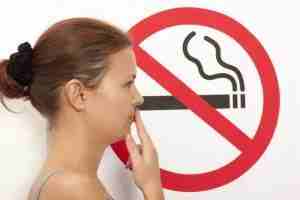Smokers, having the tooth extracted is an additional issue. You’re faced with the most important questions when is it safe to smoke? What is the best time to smoke? Although most dentists advise that you wait a minimum of 48 hours before smoking, that may seem too much time for certain smokers.
Let’s look at the tooth extraction process in Dayton, Ohio first, and then examine how the process heals. After that, we can determine the dangerous aspects that smoking could bring to the process of healing.
The Logistics Of A Tooth Extraction
The first thing to remember is that taking a tooth out is not what your dentist would like to do. They’re trained to do all possible to help you maintain the natural teeth you have. If you’ve had an accident that resulted in damage to your tooth, there is no other option but to take out the tooth, which was not in the plan originally. If you suffer from an abyss or deep cavity or advanced gum disease, any of these conditions will remove the tooth.
The reason you shouldn’t smoke following the extraction of a tooth
Smoking cigarettes generates heat from the smoke and various chemicals that could harm your gums, teeth, and oral tissue.
If you’re a smoker, you’re probably aware of the consequences of staining caused by smoking on your teeth; however, the damages caused by smoking cigarettes could be much deeper than the surface. Another danger of smoking cigarettes for oral health is developing oral diseases.
In particular, after getting teeth pulled, smoking cigarettes smoke can cause discomfort at the tooth extraction location. In addition, it slows the healing process and makes the patient more susceptible to infections and other complications.
The flow of blood is an additional element in healing. Smoking can cause blood oxygen levels to drop. However, oxygen in the blood is vital to the healing process.
Implications Of Smoking On The Healing After A Tooth Extraction
Smoking cigarettes could cause several problems for the blood clot you have created. The first thing to remember is to wait for at least 24 hours before smoking cigarettes. The sucking action could remove the clot, and then you’ll go back to the beginning. You’ll experience a painful and uncomfortable result if the clot gets removed, known as a dry socket. You don’t want to feel this pain.
Smoking cigarettes can cause infection and delay the healing process. The American Dental Association states that the healing process can be delayed because of the decreased blood flow to the extraction site. Tobacco products are to be abrasive to a teeth extraction location. It also hinders healing and increases the risk of infections.
Tips to avoid smoking after tooth extraction
We’ve discussed it before smokers who use cigarettes or vapes following extraction of teeth are more likely to develop dry sockets than patients who don’t smoke before tooth extraction.
A study discovered that dry sockets are present in 12percent of patients who smoked following having a tooth extracted. After tooth extraction, just 4% experienced dry sockets for those who didn’t smoke.

In the second instance, the sucking action triggered by inhaling smoke could cause a dry socket. The blood clot that develops on the extraction site may be removed, exposes the bone beneath, and triggers intense pain.
It’s not just smoking cigarettes that can trigger problems. The chemical and tobacco components in cigarettes, like nicotine, can impede healing, cause pain, and place you at the chance of contracting an infection.
What can you do to stop it? The best option is to limit the amount of tobacco you smoke not only after surgery but for a couple of weeks before the surgery, too. Also, ensure that you do not smoke following your surgery.